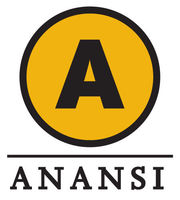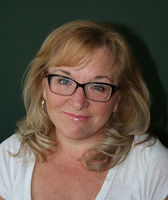House of Anansi Press's Laura Brady on Accessibility for All Readers
When you love reading but print disabilities interfere with delving into the stories you're excited about, it's a problem all book lovers should care about. Toronto publisher House of Anansi Press is putting that idea into action, striving to create ebooks accessible to as many readers as possible.
Their mission earned them the Global Certified AccessibleTM (GCA) certification for ebooks by Benetech, a recognition that Anansi’s ebooks will be accessible to readers with print disabilities. The certification exists not only to signal accessibility but to encourage publishers worldwide to make "born accessible" content the standard going forward.
To celebrate Anansi's certification and discuss the importance of accessible reading, we're excited to welcome Anansi's Cross-Media Director Laura Brady.
She tells us about how Anansi's commitment to inclusivity spans from its publishing programme to its technological innovations, how publishers can overcome challenges in tackling the technical side of accessibility, and why she is optimistic about the future of accessible publishing.
Open Book:
It seems clear Anansi and Groundwood have made accessibility a core organizational value. How did this commitment come about?
Laura Brady for Anansi:
We have! There was a slow build-up to where we are now but we have been thinking about accessibility for a long time. We have always been deliberate about how we make ebooks but as the standards for ebook accessibility change over time so there has been some catch up to do. I have been working on digital publishing accessibility for a long time, and brought that laser focus with me to Anansi. We have been poised and ready to take full advantage of the new monies available from DCH (the Department of Canadian Heritage) to work on accessibility, including funding for audiobooks, hiring an accessibility workflow consultant, and hiring a tech intern to focus solely on fixing up backlist ebooks.
OB:
Do you feel there has been a lag in the wider publishing industry around accessibility? If so, why do you think this might be?
LB:
The answer to this question is complicated. I mean, I think there is a lag in tech in general, in thinking about and implementing accessibility, so the publishing industry isn’t special in that regard. But the publishing industry, particularly indie Canadian publishing, is powered by employees doing two or three jobs at once which means that ebooks — which, let’s be honest, aren’t all that sexy to begin with — only get passing attention. Then, the technical debt from relying on Adobe’s InDesign to create ebooks is, well, a pile on. The technical knowledge needed to make really clean ebooks is peripheral to someone who is, say, the designer, typesetter, and marketing person. And while InDesign is a good layout tool, it’s not a good ebook creation tool out of the box. It requires a lot of tweaking of the controls, and some diving into the HTML and CSS to make a really fit ebook. I don’t think that anyone is actively trying not to make inaccessible ebooks, but the awareness of what it takes and the technical knowledge needed make it feel out of reach.
I should pause here to say that making accessible ebooks is not rocket science. Anyone can do it — Anansi is not staffed by unusually smart, technical people. Anyone can get this, I promise. But it does require some thought and attention to a publisher’s workflow.
OB:
How does technological accessibility dovetail with Anansi's publishing program?
Your CanLit News
Subscribe to Open Book’s newsletter to get local book events, literary content, writing tips, and more in your inbox
LB:
At this very moment in time, thinking about diversity and inclusion is at the front of everyone’s minds. Folding thinking about accessibility into that work is, I think, key to genuine inclusion. Anansi has always put effort into diverse voices in our publishing program. The work to publish as accessibly as possible is a natural extension of that work.
OB:
What do you hope for in terms of the future of accessible publishing? Where would you like to see the industry heading?
LB:
One of the reasons that we are talking today is because Anansi has just been given the Benetech GCA certification. I would love to see more publishers engaged in the process to get this certification. The process is iterative and, as a result, an education in and of itself. The process of getting certified will force the workflow changes that publishers need to make good ebooks, for example. I would also love to see publishers motivated to do the work to get the kinks of out their processes.
One of the most important areas of focus is exposing accessibility metadata to the consumer so that books that meet the standard are easy for consumers to find. There can be metadata embedded in ebooks that details its accessibility in addition to ONIX codes that travel with ebooks and audiobooks. If that info is made available in some meaningful way to consumers, then readers can find the books that meet their needs a little more easily. This, then, makes the business case for doing the work a little more palpable. If readers can find content that they can read, then they will buy or borrow it.
There are lots of interesting things happening in this space. Simultaneous braille publications are happening a little more often. Organizations like NNELS and eBound are doing really interesting projects. The EPUB 3 working group is poised to tackle the inaccessibility of the fixed-layout format. Awareness of the need for work in this area is at an all-time high and that’s a good thing. There is work to do, no question, but the will is strong. And, thanks to the Canada Book Fund, we have boots on the ground to get the work done.
____________________________________________________
House of Anansi Press was founded in 1967 with a mandate to publish Canadian writers. We respectfully acknowledge that the land on which we operate is the traditional territory of many nations, including the Mississaugas of the Credit, the Anishnabeg, the Chippewa, the Haudenosaunee, and the Wendat peoples.



